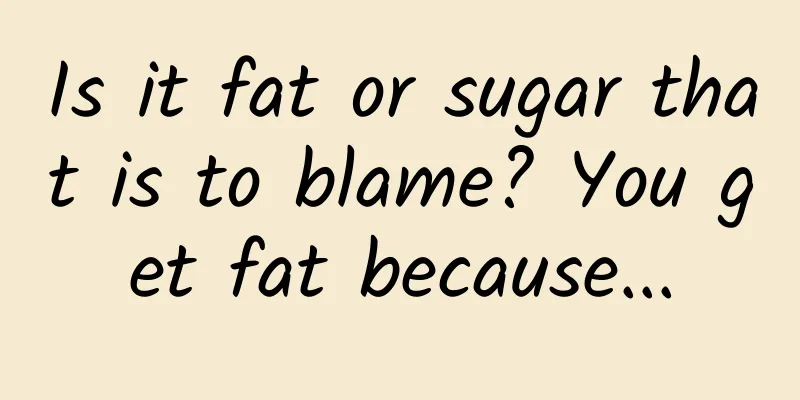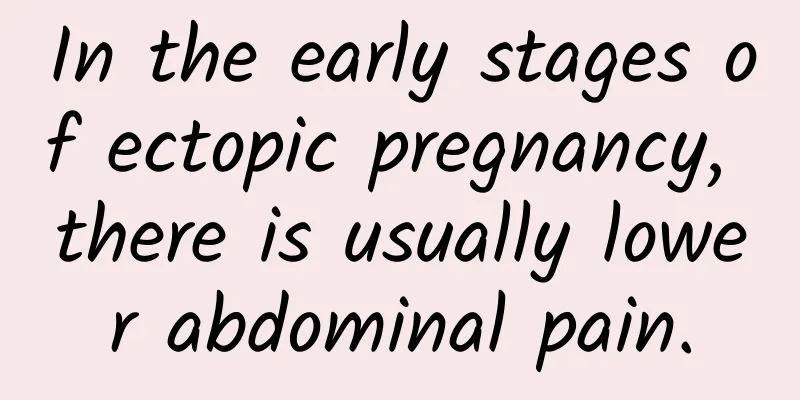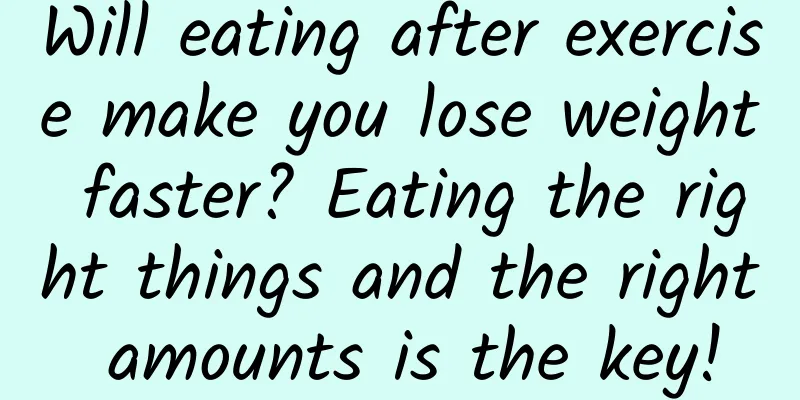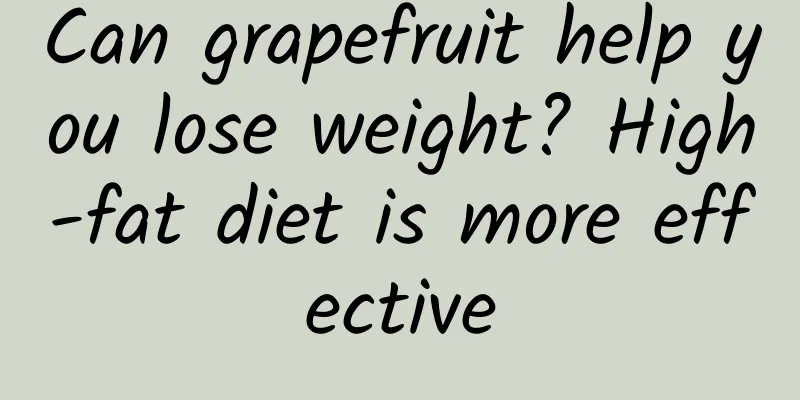Is it fat or sugar that is to blame? You get fat because...

|
Is it sugar or fat that is the culprit for human obesity? This has always been a controversial argument. One group argues that sugar is addictive like poison and accelerates obesity, while the other group tends to support that a high-fat diet is the main cause of obesity. This aroused the curiosity of a pair of twin doctors in the UK, and they decided to launch an experimental project. In fact, this experiment was broadcast on the British BBC News Channel as early as 2014, and it caused quite a stir at the time. Recently, this topic has set off a new wave of discussion on the Internet. Let us review the experimental plan at that time and ask nutritionist Cai Yixuan to analyze it for us! The twins Chris van Tulleken and Xand van Tulleken are infectious disease experts and tropical medicine experts respectively. They are identical twins with the same genes. In addition to their appearance, their height and body shape are also very similar. Chris was assigned to a high-sugar, low-fat diet combination, while Xand was assigned to a low-sugar, high-fat diet. Zander’s diet (low-sugar, high-fat food): meat, cheese, steak, chicken with skin, hamburgers, egg yolks, etc.… Fruits are strictly prohibited, and there are almost no green vegetables and fruits. Chris’s diet (low-fat, high-sugar food): bread, pasta, rice, fruit, cola, sugar, jelly, potatoes… PART I: It turns out that the brain is a sweet tooth? Before the experiment, a full-body measurement of body fat percentage, cholesterol level, insulin, blood sugar level, etc. was performed. After two weeks, a small experiment was conducted to test whether the flexibility of the brain was affected by diet. The task was to arrange two people to work in a stock exchange for a day, so that their brains would work in a highly stressful environment, in order to judge their brain performance. Chris, who eats a high-sugar diet, clearly won the test because the human brain is in great need of sugar and consumes 60% to 70% of the glucose we consume every day. Nutritionist's analysis The only energy source for nerve cells is glucose. The central nervous system can only function normally when blood sugar is kept constant. The brain has no place to store glucose, so it has to constantly get it from the blood. Xander only consumes high-fat foods, so his brain lacks the glucose needed for normal functioning, and his performance is naturally affected. In addition, glucose is also involved in memory formation and has a certain impact on learning ability or retention of long-term memory. PART II: Who gets hungry faster? In the third week of the experiment, the nutritionist asked the two to eat the same calorie breakfast. Three hours later, they were invited to have their own lunch at the same time. The calories in both lunches were exactly the same. However, Xander, whose staple food was high-fat (meat, cheese), felt full after eating only 825 calories, while Chris kept eating and eating and finally felt full after eating 1250 calories. Nutritionist's analysis Intake of high-sugar foods, especially refined sugars and high-GI foods, will stimulate the secretion of large amounts of insulin, accelerate nutrient storage and lipid accumulation, making it easy to feel hungry. In the long run, it will aggravate insulin resistance and lead to metabolic diseases. Lipids stay in the stomach for a longer time, so it is easy to feel full. Many people almost do not consume fat in order to lose weight, but this makes them more likely to feel hungry, and weight loss plans are difficult to sustain. But is this enough to convict sugar and fat? Of course not! Let's keep watching~ PART III: Will physical fitness get better or worse? The experimental task was to invite a professional cyclist coach to give the two people a physical fitness test. They were first asked to ride a bicycle for an hour to consume their physical strength. Then they were given two pieces of butter and two pieces of sugar respectively to replenish their energy. Then they started a competition to see who could sprint to the top of the mountain the fastest. The results showed that Chris won again in this level and widened the gap with Zander. When measuring blood sugar levels, it was found that Chris's blood sugar concentration was as high as 7.1, while Zander's was only 5.1. Nutritionist's analysis When performing high-intensity exercise, the energy consumed is mainly glycogen in the muscles, but the body's glycogen storage capacity is limited. Therefore, supplementing carbohydrates during exercise can slow down the consumption of glycogen in the body and delay the onset of fatigue. Team leader Li frowned, thinking that the case was not simple... After a month of extreme diet plan, let’s take a look at the changes in their physical values! Chris, who eats high sugar and low fat, lost 1 kg (0.5 kg fat and 0.5 kg muscle); while Zander, who eats low sugar and high fat, lost 3.5 kg (1.5 kg fat and 2 kg muscle). In addition, there was not much change in the cholesterol levels of the two. Instead, there was a difference in blood sugar levels. Chris, who eats sugar as his staple food, has a normal blood sugar level, but Zander, who eats high fat and meat, has a blood sugar level that rose from 5.1 to 5.9. Nutritionist's analysis Malnutrition and insufficient protein intake can easily lead to loss of lipid storage or muscle loss. Both carbohydrates and lipids have a protein-saving effect. Therefore, if there is not enough calories from protein, the amino acids in the body can synthesize proteins to continuously build and repair body tissues. Zander lost weight while on a high-fat diet, perhaps because his body was in ketosis and excreted a large amount of water, or because a high-fat diet easily produced a feeling of fullness, which made him unable to eat enough calorie food, resulting in energy deficiency and a decrease in body fat and muscle mass. So this is the murderer? ! If eating high-sugar or high-fat foods will not make people overweight, then what foods make people fat? You know donuts, right? The deep-fried dough is sprinkled with plenty of powdered sugar. When you take a bite, you can taste the crispy crust and soft texture... Who can not love it? But, the murderer is it! Obesity and drug neurologist Paul Kenny conducted an experiment on mice. He first allowed the mice to eat sugar without restriction, or eat high-fat food without restraint. The mice would quickly stop eating after they were full, and their weight did not increase significantly. However, when the food was changed to cheesecake, the mice's eating rhythm became chaotic, and they would eat non-stop and become less active. Nutritionists speculate that the effect of 50% sugar + 50% fat on the brain and body is to cut off the brain's message to stop eating and trigger the brain's pleasure system. In other words, it is like taking drugs, making people feel happy and not wanting to stop eating. Processed foods such as cakes, ice cream, French fries, chocolate biscuits, sweet bread, etc., all have one thing in common: they are high in sugar and fat. The research results confirm that unnatural processed foods are the culprit that makes humans fat, and yet such foods are not only readily available in our lives but are also cheaper than natural foods. Nutritionist's analysis 1. A high-sugar diet will cause excessive secretion of insulin and lipid accumulation, which will further lead to insulin resistance. Continuous high blood sugar will increase the end products of glycation in the body, and the risk of vascular sclerosis, atherosclerosis, etc. will increase accordingly. 2. Intake of large amounts of saturated fatty acids can easily increase the level of bad cholesterol in the blood, increasing the risk of cardiovascular disease. Moreover, when carbohydrate intake is too low and lipids are broken down in large quantities in the body, it can easily cause ketoacidosis, leading to dizziness, hot flashes, lack of energy, nausea, vomiting, and even shock. 3. Chris and Xander were assisted by professional medical staff during the experiment and their physical conditions were monitored at all times. They called on the general public not to try it at home to avoid harming their health. |
<<: Sports darling! Can fitness trackers really help you lose weight?
Recommend
Explain the symptoms of cervical hypertrophy in detail
The most common disease in the cervix is cervic...
Is uterine fibroid surgery dangerous? Is the incidence of uterine fibroids high?
Uterine fibroids are common gynecological disease...
How to treat and prevent uterine fibroids
Uterine fibroids are a common gynecological disea...
What causes scanty menstrual flow?
What causes scanty menstruation? Menstruation is ...
Talk to the experts about the symptoms of ectopic pregnancy
Ectopic pregnancy is a common disease among women...
What is the impact of cervical erosion on women's lives? What are the hazards of cervical erosion?
Cervical erosion is a common gynecological diseas...
Having sex too often can lead to cervical cancer? These 4 things may increase your cancer risk
Ms. Wang, who is in her early 30s, walked into th...
If you are fat when you are young, you will probably stay fat when you grow up! Nutritionist: Eat like this to get a lean physique
Wasn’t being fat as a child considered fat? Many ...
What foods can help shrink uterine fibroids?
What foods can help shrink uterine fibroids? Uter...
Common clinical symptoms of chronic adnexitis
It is very necessary for female friends to unders...
What are the common misunderstandings in the treatment of adnexitis?
What are the misunderstandings in the treatment o...
Is it cheap to treat pelvic peritonitis?
The cost of treating pelvic peritonitis varies fr...
Eating a concentrated starch dinner can speed up the secretion of leptin and help you lose weight faster? Nutritionist: Be careful of the risk of "this"
Should you eat starch during weight loss? How to ...
How much does it cost to cure cervical erosion?
Many patients with cervical erosion give up treat...
Weight loss starts with breakfast! Fat comes from the mouth, remember the 4 principles of not eating fat
Does skipping breakfast make you fat? As the sayi...









